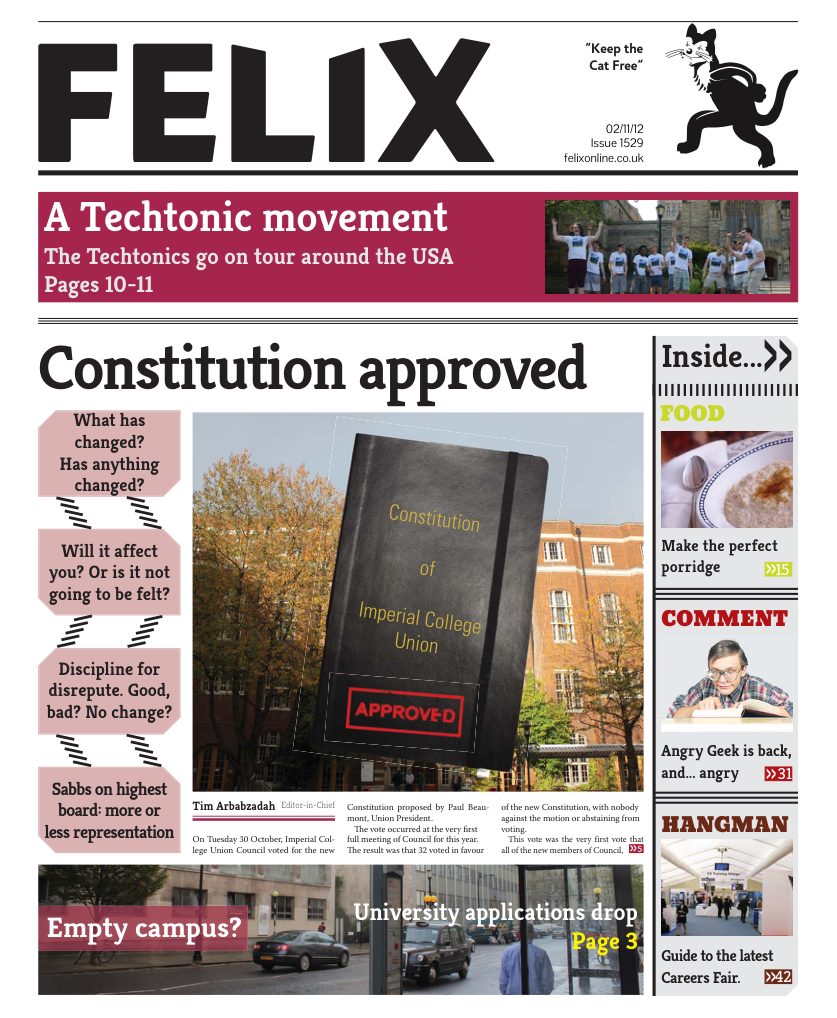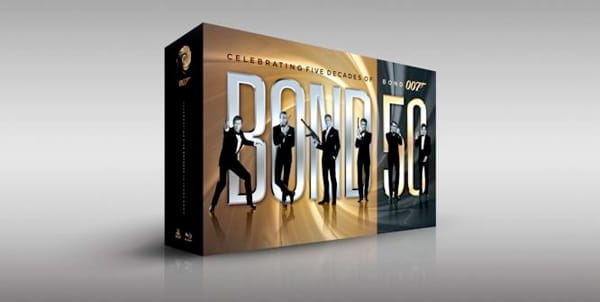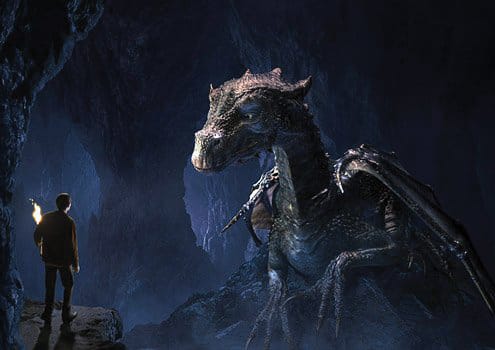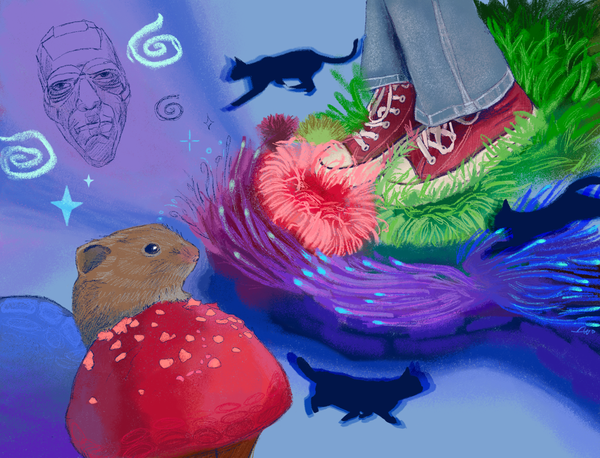Fritz the cat
Christian Franke talks way too deeply to a stranger about a classic
It was towards the end of a long, drawn-out evening at a festival during the summer, and totally by chance some good chums and I came across a cinema showing Fritz the Cat. I coincidentally had only read about it a couple of days earlier so I suggested to the cohort that we catch the closing 15 minutes. As we loitered around the back, someone else walked in and asked what the film was about. It seemed appropriate for me to answer the question with the following:
“It’s an animated film in which a hedonistic cat is used as a metaphor to explore various social issues that were particularly relevant in late 60s and early 70s urban America”
What I fired off sums up the film fairly well, but I had made two big mistakes. Firstly I had gone in too high brow and soon found myself in a conversation I wasn’t particularly keen on having. Secondly, I had not mentioned that the film is also about enlightenment. Admittedly, that is an aspect that wasn’t very obvious in the last 15 minutes, but when my friends and I watched the film in its entirety we realised that the whole plot consistently revolves around it.
The storyline of the film is largely based on the travels of Fritz whilst he is on the run as a fugitive. Throughout his adventures, Fritz often tries to find answers to the more challenging questions in life; however, as hinted earlier, a lot of the film is concerned with subjects that were acutely topical such as protest and civil rights.
There are moments that are very aesthetically imaginative, such as pool balls being pocketed to represent a dying man’s final heart beats and scenes easily escalate in absurdness at a quick rate; fighter jets bombing. being an initially small street disturbance is just one example that comes to mind.
So, if you’re at a loose end I personally would recommend watching a film about a tabby cat that goes about achieving illumination by indulging in an excess of sex, drugs and rock & roll.








